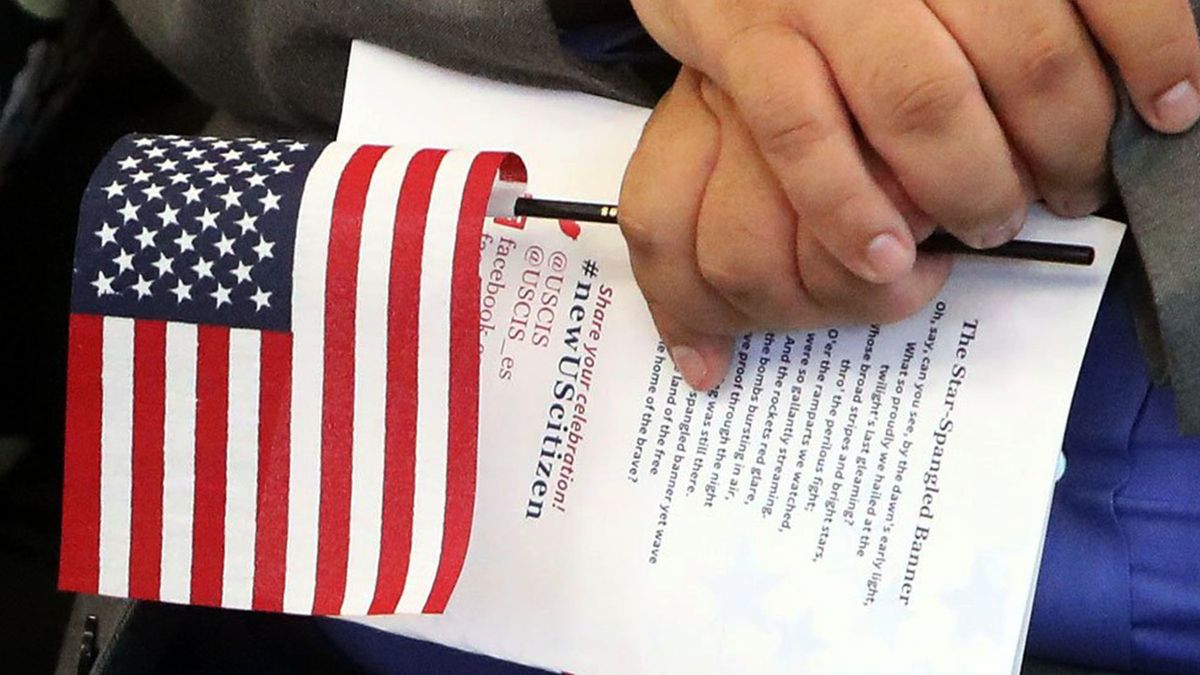The Supreme Court Permits “Public Charge" Immigration Law to Stand

A few minutes every morning is all you need.
Stay up to date on the world's Headlines and Human Stories. It's fun, it's factual, it's fluff-free.
On Monday, January 27, 2020, The Supreme Court voted 5-4 to allow a controversial Trump administration immigration law to go into effect. The law, commonly referred to as the “Public Charge" rule, would bar immigrants from entering the country if they appear likely to require any form of government assistance.
As with other Trump immigration policies, this policy has fierce critics who believe it should not stand. Historians have pointed to similarities between this law and the law that prevented hundreds of thousands of Jewish refugees from escaping Europe prior to the holocaust.
What does the Public Charge law do?
While so-called “public charge” immigration rules have existed in the US since the 19th century, the Trump administration made changes to the existing law to make it stricter. In all cases, immigrants have been considered potential public charges if they are low-income and may, therefore, require some sort of assistance from the government.
As Newsweek reported, immigrants have previously been denied entry into the country if they were considered “likely to depend on cash benefits.” Under the new rule, though, benefits can be “federal housing, Medicare or food assistance.” Any immigrant who receives benefits for a total of 12 months over a three-year period would be considered a public charge.
These new regulations would mean that even employed immigrants who nonetheless depend on some form of government assistance could be barred from obtaining an entry visa or be blocked from receiving a green card.
Challenges to Trump’s public charge rule
The Trump administration announced the updated version of the public charge rule in the summer of 2019 and it was immediately met by lawsuits from multiple states, including New York and California. The law was set to take effect on October 15, 2019, but three federal judges issued temporary injunctions against the rule on October 11.
These injunctions led to appeals, but while judges in two appeals court lifted injunctions, the New York injunction remained. As a result, the Trump administration took their appeals to the Supreme Court in January 2020. On January 27, in a partisan 5-4 vote, the justices voted to lift the injunction and allow the updated public charge rule to be implemented.
This isn’t the first time Trump’s immigration policies have been met with resistance. Other administration policies, including the so-called “Muslim ban” and policies concerning the US/Mexico border, were also challenged in court. Opponents have called the Trump administration’s immigration policy “a tool of cruelty.”
The history of the public charge exclusion
The idea to exclude public charge immigrants dates back almost 150 years. The Immigration Act of 1882 (passed into law on August 3 of that year) laid out various restrictions and duties related to immigrants passing through any port of entry to the US.
The portion of the act that came to be known as the “public charge clause” dealt with types of individuals deemed undesirable, including “any convict, lunatic, idiot, or any person unable to take care of himself or herself without becoming a public charge … such persons shall not be permitted to land.”
In 1917, an even broader set of restrictions for immigrants was passed by Congress in the form of the Immigration Act of 1917. Among the new class of people not permitted to enter the country were polygamists, prostitutes, and anarchists, as well as contract laborers. Among the groups barred from entry (including entire Asian countries), were, once again, “persons likely to become a public charge.”
The public charge rule remained largely unchanged until 1999 when, under the administration of President Bill Clinton, the Immigration and Naturalization Service set out new guidelines. Those rules explicitly stated that receiving “Medicaid, food stamps, WIC, housing benefits, child care subsidies or other non-cash benefit” would not affect an immigrant’s legal status.
Has “Never Forget" been forgotten?
The Supreme Court decision to allow the Trump administration policy to stand was made on Holocaust Remembrance Day. The timing was particularly notable for some because, as Time has noted, a similar rule barred Europe’s Jewish refugees from entering the US in the 1930s.
After the beginning of the Great Depression, President Herbert Hoover used the existing public charge clause (along with other immigration laws) to keep immigration quotas down. It reduced the accepted number of immigrants from certain countries by as much as 90%.
Many Jewish families who wanted to leave Germany for the US could not because Germany did not allow them to take their personal assets. Hoover’s successor, President Franklin D. Roosevelt, kept the strict quotas in place, even as word of Nazi persecution of the Jews reached America.
As a result of the immigration laws of the period, which included the eugenics-inspired Johnson-Reed Act, more than 300,000 Jewish refugees were barred entry into the country.
[article_ad]




Comments ()